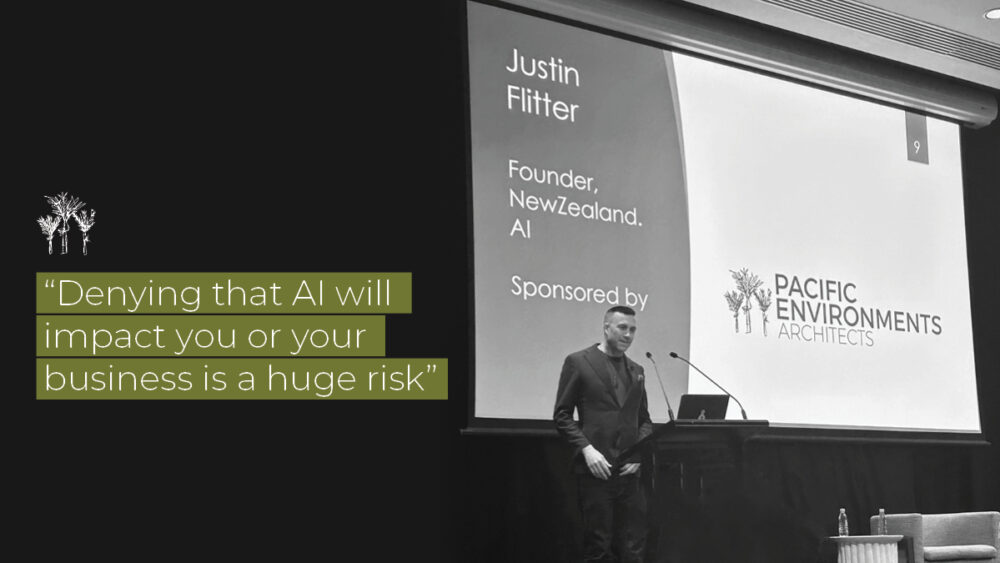For years the thought of Artificial Intelligence conjured up images of robots taking over the world. Today this remarkable technology is impacting business, people and societies in ways we could never have imagined.
Last week Justin Flitter spoke at the RVA conference we attended in Fiji. The Founder of NewZealand.AI demystified AI, showcasing the practical ways AI is benefiting a wide range of industries.
Justin showcased AI enabled WiFi that can see through walls, identifying objects like humans, robots that can pick kiwifruit, deliver meals in a restaurant, or keep dementia patients company.
No doubt you’ve heard about, or perhaps even played around with ChatGPT, the new generative AI platform. Justin said “ChatGPT has captivated us giving everyone the ability to interact with AI in a very human-like way. Think of it like a global ‘Ask Me Anything’ platform.”
Trained on all the public information on the internet, this large language learning model can predict the next word in a sentence. With a simple prompt ChatGPT can write a poem, present the structure for your marketing strategy, or give you the summary of your favourite book.
But how advanced is AI today? Should we be anxious about AI taking over our jobs, or forming its own opinions and working with other robots against humanity?
“We’re at the inflection point of the hockey stick curve, said Justin. When it comes to the potential for AI, we’re just scratching the surface.
While AI is able to complete tasks that previously only humans could do, there are shortcomings, it’s not right all the time, and it doesn’t have the context humans seek to make messages hyper-relevant.”
With generative AI we can have a conversation, seeking answers, or turn a text prompt into an image, or even a video. “In the next few years more than 30% of marketing content will be synthetic, says Justin. At the rate this technology is developing feature length Hollywood movies produced using generative AI will be hitting your screens very soon.”
For the architectural, design and construction sectors there are many applications. From turning your idea into a concept image to having a conversation with your structural designs to make edits, testing for accessibility or finding faults. To using Augmented reality apps to visualise and ‘walk through’ your designs.
Construction sites are already using Computer Vision, cameras powered with AI that can see and identify objects to monitor for health and safety, record and report on waste.
Today business leaders are watching their employees experimenting with AI tools at work, they’re worried about their competitors using or adopting AI faster than them, and concerned about data, privacy and ethical risks.
Justin’s advice is to lean in to AI, “Being apathetic, denying that AI will impact you or your business is a huge risk. It’s important for businesses to fuel curiosity and adoption of AI tools, while recognising and mitigating the potential risks. Those that do will have the upper-hand on their competition and be in a stronger position to support their employees and customers through this period of rapid change.
It’s not that Artificial Intelligence will take your job, it’s more likely that someone better at using AI than you will. Whether its commercial competitiveness, or career competitiveness, we all need to be learning about AI and understand how it can enable us to be more creative, productive and efficient.”
You can learn more about AI for business, including some Apps to try out at NewZealand.AI












Comments are closed.